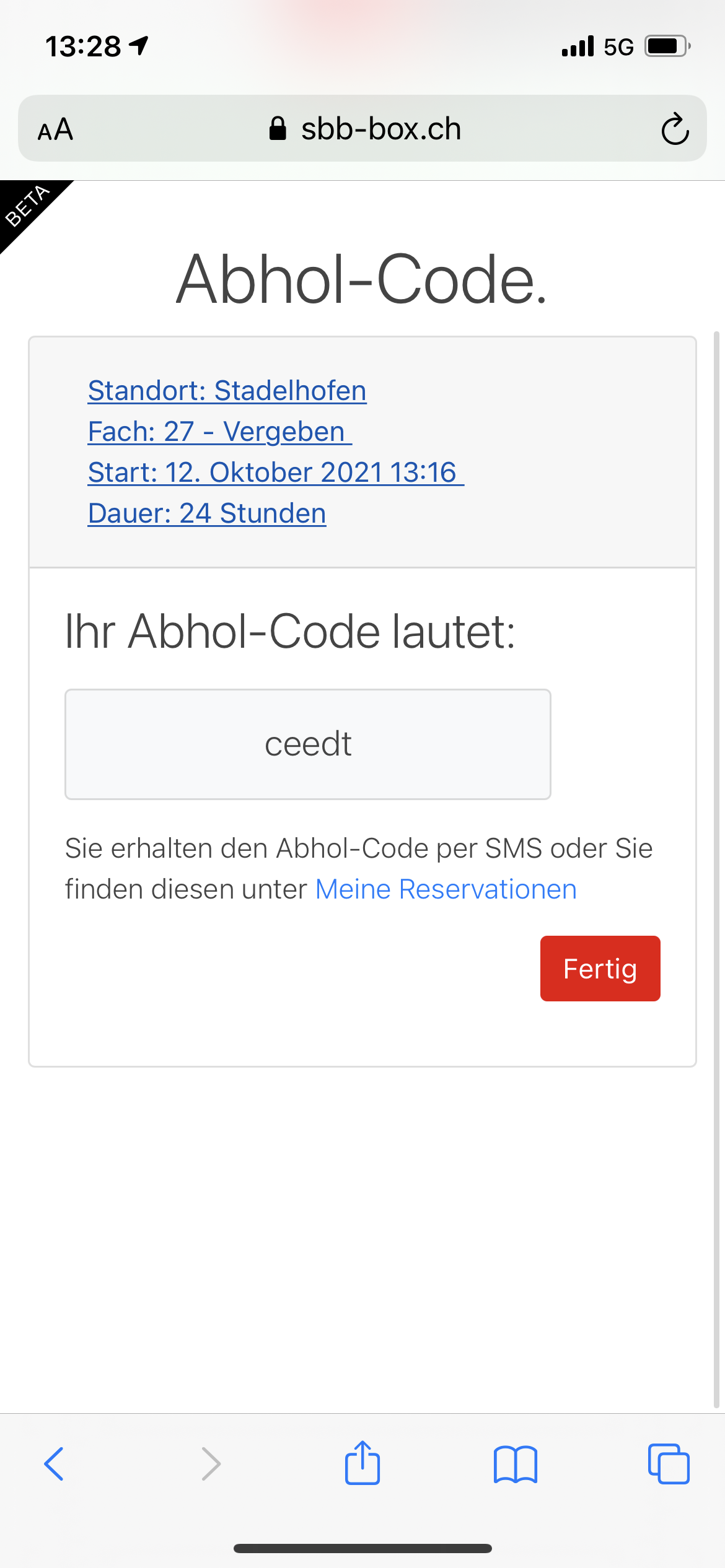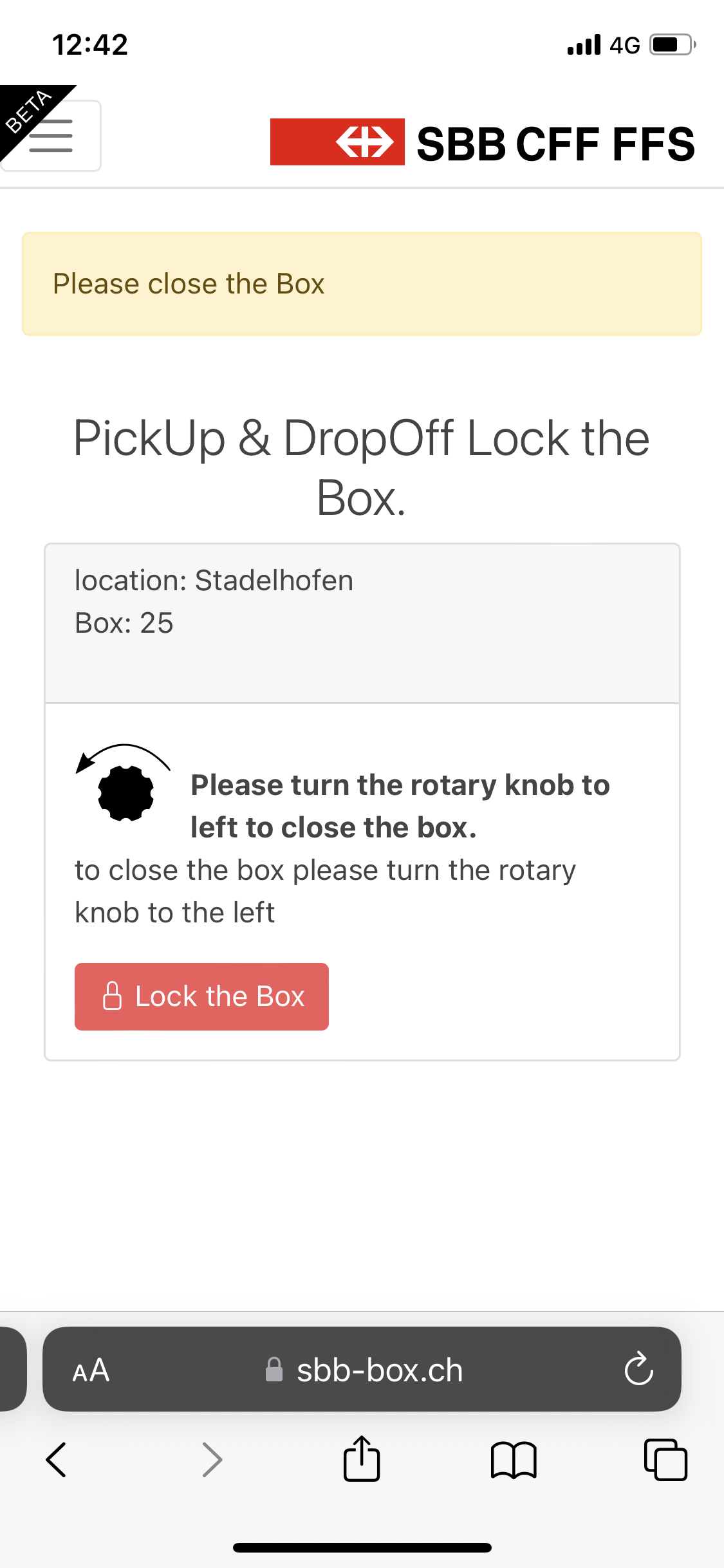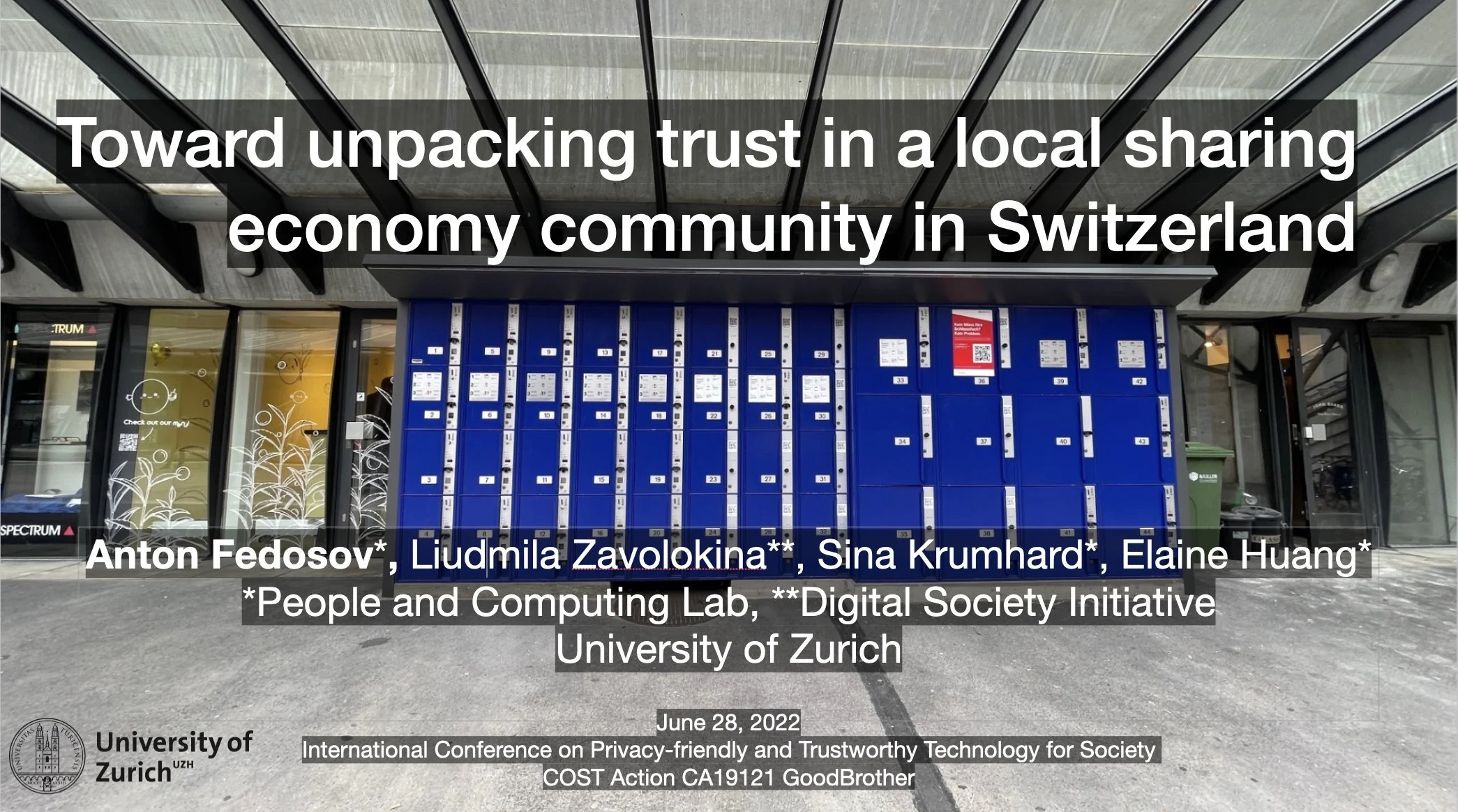Unpacking Interpersonal and Systems Trust in a Sharing Economy Community in Switzerland
type
Filed Study
method
Qualitative Interviews
Quant UX Study
period
2021-2023
―
An increasing number of non-profit groups, grassroots initiatives, and member-owned cooperatives offer collections of shared things (e.g., tools, surplus food) and resources (e.g., community-owned spaces, fertile land) intended to benefit (local) communities. Many of these Community-oriented Sharing Economy initiatives provide network-driven tools and apps for shared resource management, communication, and coordination among members. With the automation and complexity of these digital tools and platforms and the specific challenges of online sharing communities, users' trust has become increasingly critical for successful use and adoption. I set up a research study to explore constituting elements of interpersonal trust in a sharing economy community and systems trust of the supporting technologies.
In this study, I collaborated with two industry partners: (1) Sharely, the largest Swiss two-sided online marketplace for lending and borrowing infrequently-used household goods (e.g., a drill, a bike pump, sports equipment); and (2) SBB Swiss Federal Railways, who supplied Smart Boxes — Internet-enabled luggage lockers that can be opened and closed via a mobile app — as a place to exchange household goods among peers. Through a survey (N=67) and follow-up interviews (N=14), I elicited Sharely's users' perceptions of trust within the membership and their supporting technologies. On this basis, I elicited a set of design opportunities to support trust for future platforms in the context of sharing economy.
The key learning points for designers of the community-oriented sharing economy platforms are formulated across two aspects of trust:
Interpersonal trust. Encourage designers of the community-oriented sharing economy to Provide opportunities to facilitate reliable peer behavior (e.g., through contextual nudges on the UI level to remind about unanswered item requests), Improve the feedback process (e.g., explained canceled item requests), and Ensure a safe and trustworthy environment (e.g., suggest safe places for items exchanges).
Systems trust. In particular, the designers should Provide consistent reliability of service (e.g., clearly community about upcoming service's maintenance or downtime), Make the interaction with the service predictable (e.g., allow users to revert undesired actions on the system using known UI patterns such as Snackbars), and Alleviate existing privacy concerns (e.g., opt-in for transparency when sharing users' data between intermediaries through Privacy Nutrition Labels).
Project in collaboration with Sina Krumhard, Mila Zavolokina, and Elaine Huang from the University of Zurich (Switzerland), Ivo Kuhn from Sharely AG (Switzerland), Catherine Schweizer and Heike Kiefer from SBB AG (Switzerland).
Publications:
Anton Fedosov, Liudmila Zavolokina, Sina Krumhard, and Elaine Huang. (2022) Toward unpacking trust in a local sharing economy community. In Proceedings of the International Conference on Privacy-friendly and Trustworthy Technology for Society – COST Action CA19121 - Network on Privacy-Aware Audio- and Video-Based Applications for Active and Assisted Living, doi:10.5281/zenodo.6823362
Anton Fedosov, Liudmila Zavolokina, Sina Krumhard, and Elaine Huang. (2023) "This Could Be The Day I Die": Unpacking Interpersonal and Systems Trust in a Local Sharing Economy Community. Proceedings of the ACM CHI'23 Conference on Human Factors in Computing Systems - Extended Abstracts, ACM Press, doi:10.1145/3544549.3585744





